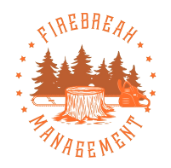Communities can work together to reduce the risk of wildfires in their area by taking several proactive measures. Firstly, they can ensure that their homes are fire-resistant by installing fire-resistant roofing, siding, and windows. Secondly, they can create defensible space around their homes by removing any dead or dry vegetation within 30 feet of their homes. Thirdly, they can develop an emergency plan that includes evacuation routes and communication protocols. Fourthly, they can organize neighborhood watch groups to monitor for any signs of fire and report them to authorities immediately. Finally, they can participate in local fire prevention programs and support their local fire department by volunteering or making donations. By working together and taking these steps, communities can significantly reduce the risk of wildfires in their area. Preventing wildfires can save human and animal lives, as well as important animal habitats.
5 Proactive Measures to Reduce Wildfire Risk in Your Area
Taking proactive measures is a great step towards reducing the risk of wildfire in your area. Here are some tips that you can follow to help prevent wildfires from starting:
1. Keep your property clear of debris and flammable materials. This includes clearing leaves, dead branches, and other vegetation from your yard.
2. Create a defensible space around your home. This means removing any flammable materials from within 30 feet of your home, and reducing the amount of flammable plants within 100 feet of your home.
3. Maintain your home’s roof and gutters. Make sure that your roof is made of fire-resistant materials, and that your gutters are free of debris.
4. Be careful with outdoor activities that can start a fire. This includes activities like camping, grilling, and smoking. Always obey fire restrictions and make sure that you have a fire extinguisher on hand.
5. Stay informed about wildfire risks in your area. Sign up for local alerts and updates, and make sure that you have an evacuation plan in case of an emergency.
The importance of emergency plans in areas that have high wildfire rates
It’s crucial to have an emergency plan in place if you live in an area with a high risk of wildfires. In addition to taking proactive measures to reduce the risk of fires, such as using fire-resistant materials and keeping your property clear of debris, it’s important to know what to do in case of an emergency. Make sure that you and your family have a plan in place for evacuating your home, and that everyone knows what to do in case of a wildfire. Stay informed about wildfire risks in your area, and be prepared to act quickly if necessary. By taking these steps, you can help ensure the safety of yourself and your loved ones in case of a wildfire.
The Importance of Neighborhood Watch Groups in Wildfire Prevention
When it comes to preventing wildfires, one of the most effective strategies is to work together as a community. Neighborhood watch groups can play an important role in wildfire prevention by keeping an eye out for potential hazards and alerting authorities to any signs of danger. By working together to identify and address risks, neighbors can help reduce the likelihood of wildfires and keep their communities safe. In addition to neighborhood watch groups, individuals can also take steps to prevent wildfires. This includes properly disposing of cigarettes and other flammable materials, being careful when using outdoor cooking equipment, and avoiding outdoor burning during dry conditions. It’s also important to maintain a defensible space around homes and other structures, which involves clearing flammable materials and vegetation from the immediate area. If you’re interested in starting a neighborhood watch group in your area, reach out to local authorities or community organizations to get started. Remember, when it comes to wildfire prevention, every little bit helps, and working together can make a big difference. By taking these small steps, we can all do our part to protect our communities and prevent devastating wildfires.
Supporting Your Local Fire Department: Ways to Get Involved in Fire Prevention
Supporting your local fire department is an important part of fire prevention in your community. There are many ways that you can get involved and make a difference, from volunteering your time to donating resources and spreading awareness about fire safety. One of the most effective ways to support your local fire department is to volunteer as a firefighter or as part of a support team. Firefighters and support teams are essential to responding to fires and other emergencies in your community. By volunteering your time and skills, you can help ensure that your community is prepared and protected. If you’re not able to volunteer as a firefighter, there are still many other ways that you can get involved. One option is to donate resources such as fire safety equipment or financial contributions to your local fire department. This can help ensure that your department has the resources it needs to respond to emergencies effectively. Another way to support your local fire department is to spread awareness about fire safety in your community. This can involve educating your neighbors about fire prevention strategies, sharing information about local fire safety events, and encouraging others to get involved in fire prevention efforts. Finally, you can also support your local fire department by advocating for fire safety policies and regulations at the local and national levels. This can involve contacting your elected officials to voice your support for fire safety initiatives and supporting organizations that work to promote fire safety and prevention. In summary, there are many ways that you can get involved in supporting your local fire department and promoting fire prevention in your community. Whether you volunteer your time, donate resources, spread awareness, or advocate for fire safety policies, every little bit helps to keep your community safe and protected from devastating fires.
